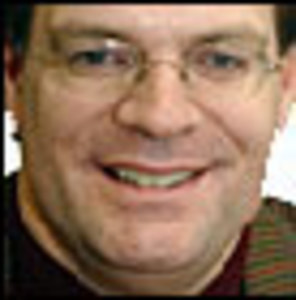One of the major surprises in the January 2006 federal election was how the Conservatives were able to drive a wedge into French-speaking Quebec.
The Conservatives won 10 seats and 25 per cent of the vote, and it soon became clear that Stephen Harper's hope of a majority depended upon major gains in the province.
To do this, however, the Conservatives need to woo a significant share of Quebec's nationalist voters away from the Bloc Québécois.
The presence of the Bloc makes it hard to repeat Brian Mulroney's sweeping victories, but with the Liberals in disarray, Conservatives should be allowed to dream big.
To get a substantial share of the vote among nationalist Quebecers who are not unconditional sovereignists, Harper's team needs four things: flexible federalism, symbolic recognition, clout for Quebec in cabinet and strong allies in provincial politics.
Not long ago, Harper could count on all these things, but nothing seems to be working for him now.
First, to attract Quebec's "soft nationalists," the Conservatives need to offer a flexible federalism that yields autonomy to the province in key policy areas.
This is what initially led Harper to open up to the demands of Jean Charest's government, which at first preferred accommodation to confrontation with Ottawa's "new government."
That worked for a while, when the Conservatives' "open federalism" consisted mostly of moving away from federal meddling in the provinces' social policies.
Since then, attention has shifted to areas in which the Tories are less inclined to relinquish federal control, such as macroeconomic policy, energy or the environment.
In these areas, Charest has much to gain politically by asserting Quebec's position vis-à-vis an intransigent federal government and aligning with Ontario rather than the West.
Second, the Conservatives need to offer some form of symbolic recognition of Quebec's distinct status in the federation.
For Mulroney, this meant bringing Quebec into the Constitution as a "distinct society."
Harper couldn't go that far, so when the Liberals tried to play the symbolic recognition card, he beat them to it with his motion recognizing "the Québécois" as a nation.
It was clever but, as the motion means one thing to French Quebecers and something else to English Canadians, it is bound to remain a source of misunderstanding.
In a federal election campaign, this may hurt the Conservatives, if it puts them in constant contradiction with themselves.
Third, the Conservatives have to rely on strong provincial-level allies.
Last year, when Charest's Liberals were faltering and Mario Dumont's Action démocratique du Québec was rising, Harper made a rapprochement with Dumont in the hope of tapping into his expanding right-of-centre "soft-nationalist" electorate.
The fit was natural but the choice was ill-fated, as Dumont proved less than stellar as opposition leader and his team of neophytes has failed to convince Quebecers that it could run a government.
This leads to the fourth element: To win in Quebec, the Conservatives need a solid team that projects an image of competence and gives the province real clout in government.
If the Bernier-Couillard affair revealed anything, it was the shallowness of Harper's Quebec bench.
Of the remaining Quebec MPs in his cabinet, none has the stature to make a significant difference in a campaign, and Harper has as yet been unable to attract the kind of star candidate who would turn things around.
All in all, things don't look too good for the Conservatives' plan of winning big in Quebec.
With the Bloc regaining strength in the polls and the NDP and Greens nipping at the core federalist electorate, the Tories' last hope in Quebec may be the Liberal leader himself, Stéphane Dion, but that's another story.
***
Pierre Martin is a professor of political science at the Université de Montréal.
Harper's Quebec strategy falls apart
Dérives démocratiques - la société confrontée à sa propre impuissance

Pierre Martin50 articles
Pierre Martin est professeur titulaire au Département de science politique de l’Université de Montréal et directeur de la Chaire d’études politiques et économiques américaines (CÉPÉA). Il est également membre du Groupe d’étude et de recherche sur la sécuri...
Cliquer ici pour plus d'information
Pierre Martin est professeur titulaire au Département de science politique de l’Université de Montréal et directeur de la Chaire d’études politiques et économiques américaines (CÉPÉA). Il est également membre du Groupe d’étude et de recherche sur la sécurité internationale (GERSI)































Laissez un commentaire Votre adresse courriel ne sera pas publiée.
Veuillez vous connecter afin de laisser un commentaire.
Aucun commentaire trouvé